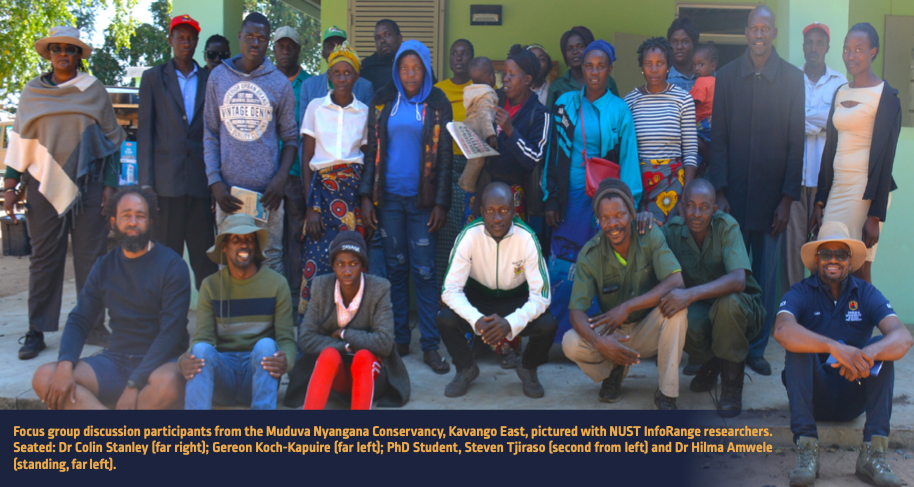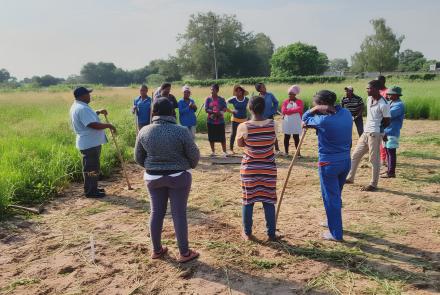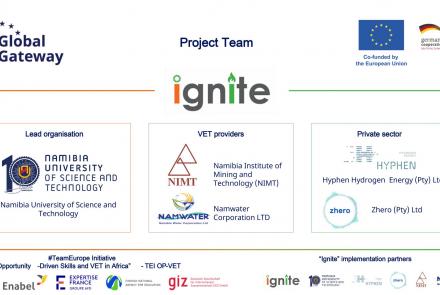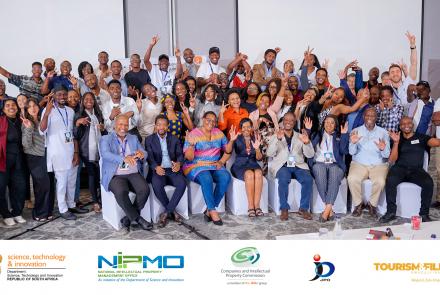Increasing efficiency in rangeland-based livestock value chains
The Namibia University of Science and Technology (NUST) has joined an international consortium to establish a multidisciplinary project that will focus on the co-design and development of solutions to improve efficiency of rangeland-based livestock value chains.
Partners
The InfoRange Research Project brings together partners from Namibia, Germany, and Kenya to collaborate on an initiative that aims to enhance rangeland use and governance, as well as resource-use and production efficiency in rangeland-based livestock production. Funded by the German government, the InfoRange consortium includes NUST, the Namibia Nature Foundation (NNF), the German Institute for Tropical and Subtropical Agriculture (DITSL), the University of Kassel (UK), Germany, the Kenyan-based Centre for Research and Development in Drylands (CRDD) and the University of Nairobi, Kenya
Multidisciplinary Approaches
The InfoRange Project takes a multi- disciplinary approach in that it cuts across the agriculture and digital technologies sectors. It involves the collaborative design and development of ICT applications and services that allow user-generated data collection and transmission. A key component of this project is to understand the current system of collecting and sharing information that is used for decision-making by pastoralists, its shortcomings and the information needs of local communities. The intention is therefore to develop a tool that allows for pastoralists to gather and share site-specific information on the condition and intensity of rangeland resource use in real time. In this way the digital tool is expected to facilitate decision- making, speeding up this process and causing it to be more responsive to immediate needs. In Namibia, InfoRange team consists of researchers from NUST and the NNF, and they recently undertook site visits to the Kavango East and Omaheke Regions. The primary aim of these visits was to introduce the InfoRange Project to local communities and to brief them on the objectives and expected outcomes of the project.
“Our intention was to gauge the level of interest in this project from the local communities, but also to gain initial insight into the opportunities and challenges for the integration of emerging technologies for efficient livestock production,” said Dr Colin Stanley, NUST Acting Deputy Vice-Chancellor for Research, Innovation and Partnerships. Dr Stanley is also the NUST InfoRange Principal Investigator.
The site visits included a series of focus group sessions which the Namibian InfoRange research conducted with the local communities. During these sessions the discussion centered around grazing governance as well as the marketing of livestock. The participating community members included headmen and headwomen, farmers, and councilors. “The communities showed very keen interest in working with the InfoRange researchers and appeared committed to ensuring that the collaboration is sustained,” Dr Stanley said.
The digital solutions that will emerge from the process of co-design are expected to enhance sustainable rangeland use and efficiency in livestock production through improved grazing management and veterinary service provision. Co-design refers to a participatory approach to designing solutions in which community members are treated as equal collaborators in the design process. InfoRange will combine user- generated data with remotely sensed data state-of-the-art machine learning models will be developed to analyse this data, capture and understand phenomena.
These phenomena include differences in pasture use, intensity, as well as classifying and pattern recognition in different scenarios.
Community Engagement
The Kavango East and Omaheke Regions will be the focal areas for the InforRange Project in Namibia, while in Kenya implementation will take place in the northern arid and semi-arid Marsabit County in Laisamis and Moyale sub- counties. These sites represent communal livestock management systems, which will ensure that the techniques developed for better resource monitoring and evaluation are relevant for people on the ground.






